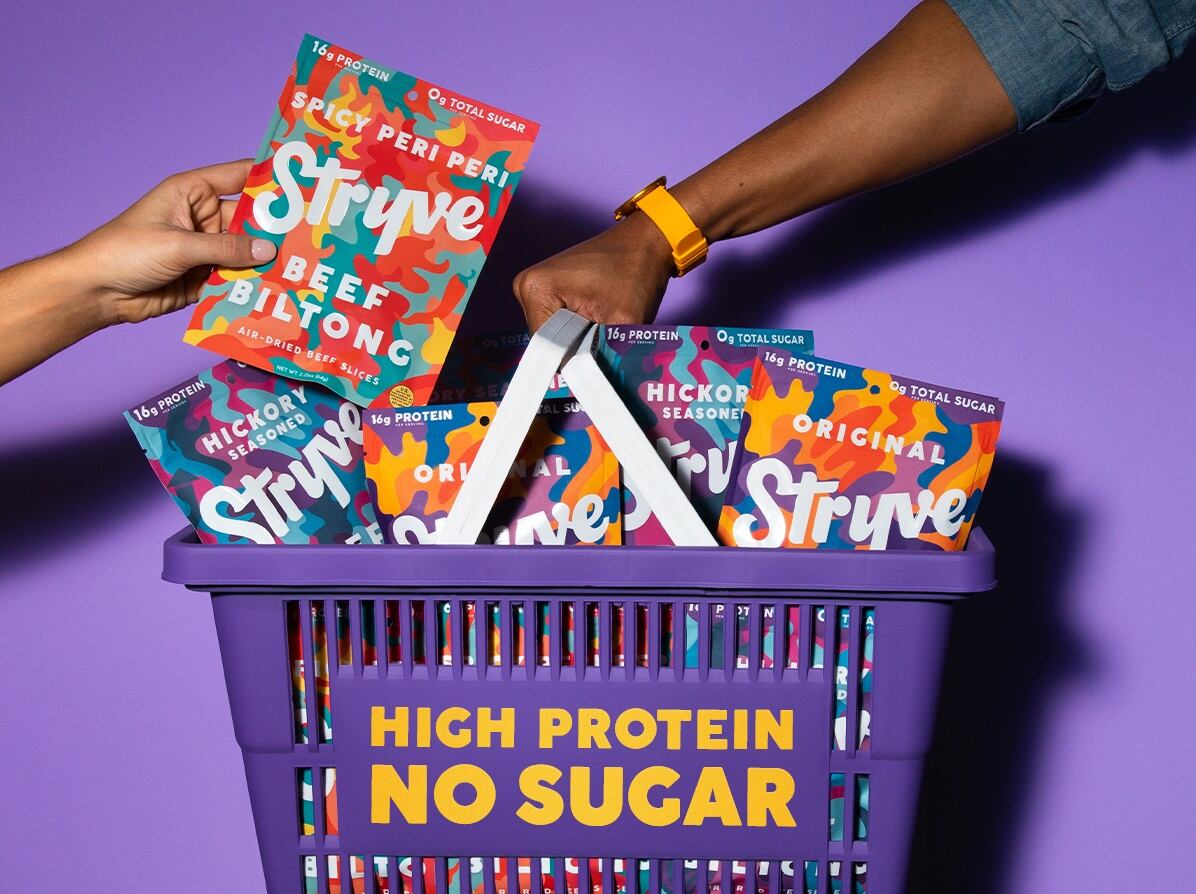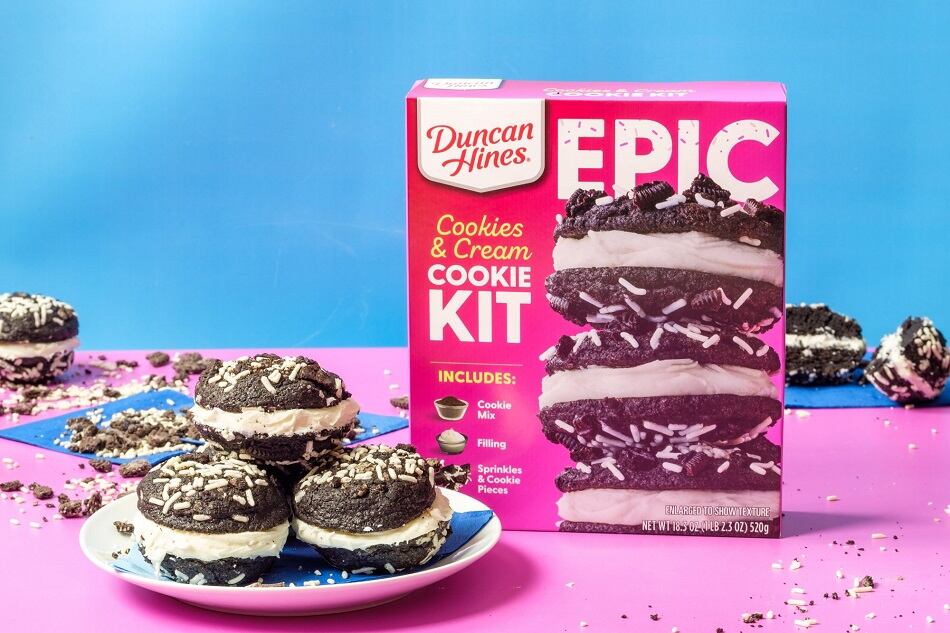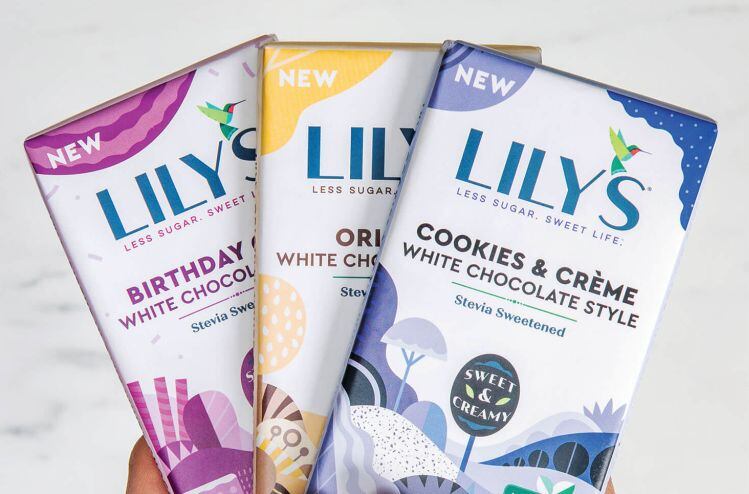Through the proposed business combination, Andina would acquire Stryve's business in an 'Up-C structure,' changing the company's name to Stryve Foods, Inc, which is expected begin trading on the NASDAQ under the new symbol 'SNAX' this week.
Immediate access to capital
Stryve, which has been in fundraise mode for the past year, saw an immediate advantage to the prospect of joining forces with publicly-traded Andina, noted Stryve co-CEO and chief marketing officer, Jaxie Alt.
"To do a typical IPO would take quite a bit of time," Alt told FoodNavigator-USA, who added that Stryve didn't connect with many private equity firms because of its atypical path to market as an emerging brand building a new category in the US.
Unlike many brands starting out who use the less capital-intensive co-manufacturer route, Stryve built a dedicated manufacturing facility to produce its biltong products when it first launched into the market in 2018.
"You have very few startups that invested the kind of money we did to build a factory, because we had to, because it didn’t exist," said Alt.
"Going public through a SPAC gave us immediate access to capital that was much needed."
Stryve could not comment on the valuation of the company.
"Our belief is that Stryve is poised for rapid growth and value creation thanks to their visionary and highly capable leadership. We look forward to seeing Stryve’s continued positive disruption of traditional snacking categories, along with its realization of platform expansion opportunities,” commented Luke Weil, chairman of the board of directors of Andina, and Julio A. Torres, CEO of Andina.
Under the approved business combination, the company will continue to be led by Alt, Joe Oblas, co-founder & co-CEO, and Alex Hawkins, chief operating officer and chief financial officer along with the company's board of directors.
"As Stryve begins this new chapter as a public company, we are more eager than ever to deepen our penetration within existing channels, expand our SKUs on shelf, and build upon our already strong e-commerce momentum. As our revenues continue to grow, Stryve’s investments in people, infrastructure and vertical integration will pay significant dividends for the business,” Alt and Joe Oblas, co-CEO and co-founder of Stryve said in a statement.
What is biltong?
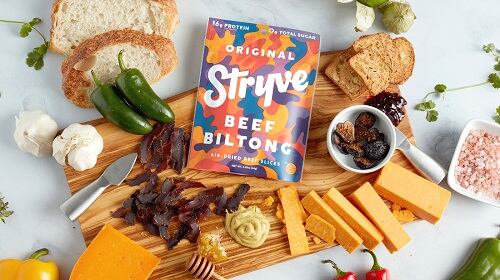
While biltong may be more recognized today among healthy snack seekers than it was when the company first launched in 2018, educating the consumer on what biltong is and how it differs from traditional jerky products will be key to the brand's ongoing success, said the company.
Referring to an air-dried process that dates back centuries in South Africa, Stryve starts with high quality steaks that are washed in vinegar then seasoned with one of the brand’s signature dry rubs, which are free from artificial ingredients, MSG, sugar, and gluten.
Unlike the typical process of making jerky - which introduces heat to dry the beef - Stryve hangs its slabs of steak in a humidity-controlled room, where they're left to air dry (better preserving the nutrition profile of the beef, the company claims). Once dried, the biltong slabs are sliced against the grain into ultra-thin, tender pieces.
Alt added that Stryve has begun in-person sampling at a few of its retail accounts to help introduce more consumers to biltong.
Double-digit net sales growth
According to the company, Stryve grew total net sales from $10.88m in 2019 to $17m in 2021 (+56%). In Q1 2021, the company has generated $6.8m in net sales.
Much of that growth has come on the back of Stryve's growing e-commerce business, which has gone from virtually non-existent in 2019 to account for 43% of net sales in Q1 2021, according to Alt.
"Our ecommerce business has continued to grow month-over-month-over-month, and that’s proof for me that we’ve really built something sustainable," added Alt.
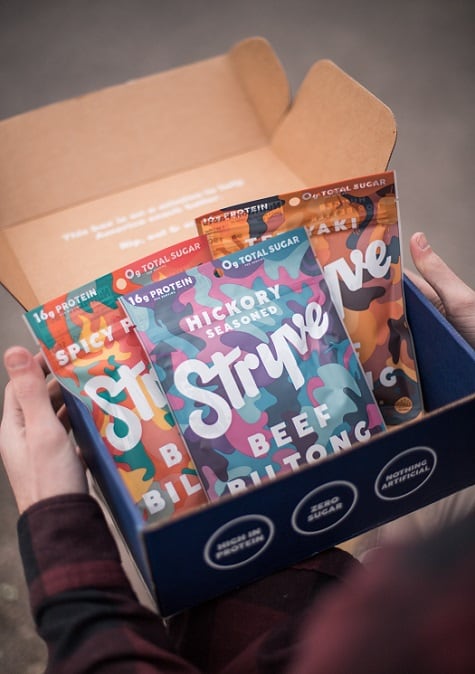
Runway beyond biltong
Stryve helped build the biltong category in the US from obscurity to distribution in over 25,000 doors within three years, including recent entry into new retail accounts including Dollar General, Wawa, Target, and its first upcoming rotation at Costco stores.
Prior to Stryve's entry into the market along with a handful of other small biltong players, the $4bn US meat snacks category was largely segmented into jerky and sticks products.
"I think we’ve brought two new consumers to meat snacks. Where we’re really making inroads is with what we call healthy snack seekers. These are people who want clean food, high protein, no to low sugar, nothing artificial. The meat snack category didn’t really offer that before, and that’s what we offer," Alt said.
"We’ve done segmentation and only 25% of that consumer buys a meat snack today, because there wasn’t something relevant for them. And we bring more women to the category as well," she added.
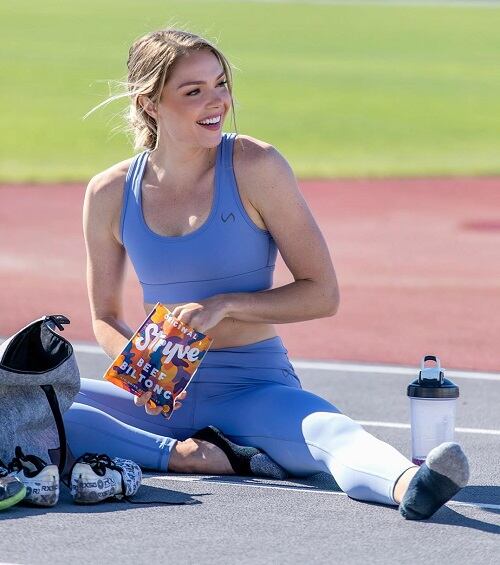
On its mission of building a market for biltong in the US, the company acquired Kalahari Snacks– the #2 biltong brand in the US and #1 brand in the natural channel – in December 2020, and also launched its Vacadillos brand, an air-dried meat snack brand targeting the Hispanic market sold online and in Dollar General stores.
According to IRI MULO data for the 52 weeks ended 5/16/2021, the company holds an 88% share of the US air-dried meat category (70% Stryve, 18% Kalahari).
However, the brand isn't stopping there, said Alt, sharing how Stryve wants to become a healthy snacking platform and is eyeing other segments within the much broader $92bn snacking category.
"We think there are a lot of other places to go. We’re looking at categories that are in need of health and wellness disruption, where we can vertically integrate, where we can be omnichannel, and come in with a really differentiated product."

